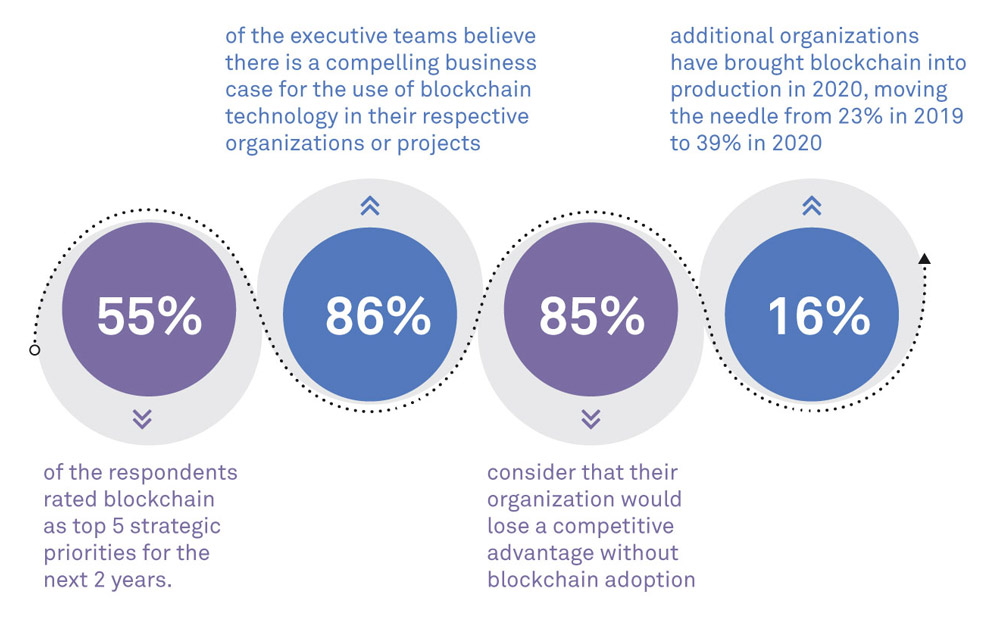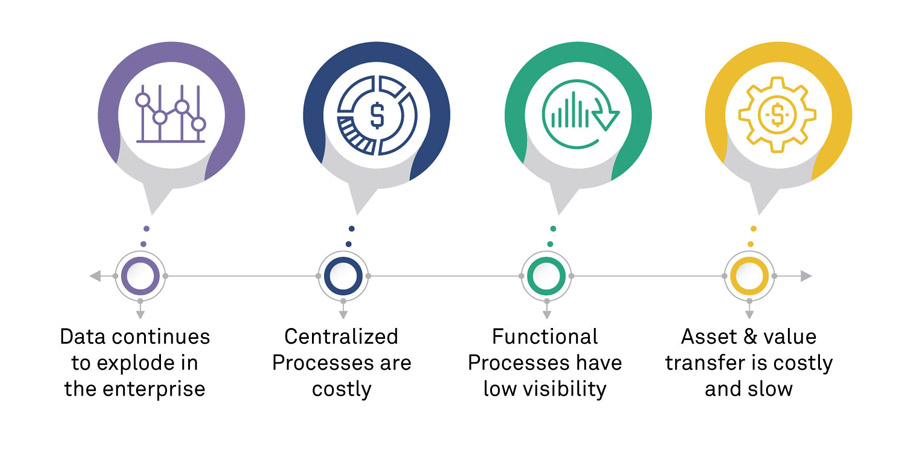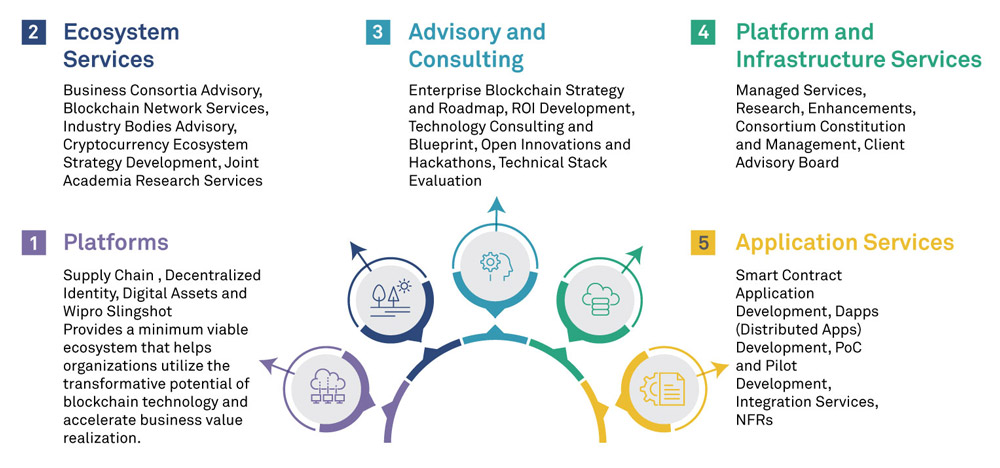Figure 1: Top challenges across industries
How blockchain will impact finance & accounting
As other corporate functions an industries take a huge leap forward to bring blockchain into production, we also need to acknowledge the disruptive technology as a potential game-changer for accounting as well.
Blockchain provides an immutable system of records where assets, liabilities and business or financial transactions are stored and automatically reconciled among parties. Accounting and cash flow transactions are locked into a single ledger and stored in different “blocks” of information, which can be automatically verified and reconciled as well as viewed by all authorized users.
Here are some of the most relevant benefits of blockchain to the accounting function:
Triple-entry - improved efficiency, reduced errors & fraud avoidance
The accounting guiding principle around double-entry bookkeeping will have a third dimension where all transactions are written on the blockchain; information is shared and can be consumed by involved parties based on different levels of access, eliminating data entry, reconciliations and approval / validation roles.
Modifying records on blockchain is close to impossible, so the new technology will guarantee integrity of data entries.
Reduced auditing efforts and fees
Thanks to the inherent traceability in blockchain solutions, audits can be highly automated. According to ACCA, the auditor of the future will wear a different hat. They will need to focus on understanding whether the applications are aligned to data security and integrity rules and policies and whether the controls in place are enough to guarantee a true and fair view of the accounts.
Easier reconciliation
Month-end reconciliation tasks can be highly automated using smart contracts.
Freight fees audit and reconciliations with thousands of line items will disappear once a robust blockchain shipping and freight management solution is in place.
Inventory accounting will become an effortless job while ensuring top precision in the process.
About 60% of data in PO is linked to the invoice. Shared recordkeeping of information across stakeholders and use of smart contracts can optimize the reconciliation process, resulting in significant cost savings through improvement in time (AHT reduction), and effort (FTEs).
Smart contracts automation
Blockchain technology allows for smart contracts, i.e. computer programs that may execute under certain conditions. For example, payments can be triggered automatically once a GR confirms appropriate receipt of goods and availability of funds upon due date has been established. Similarly, billing can be prompted upon certain conditions being fulfilled.
Initiatives are underway for digitization of contracts – contract rules encoded using smart contracts (e.g. SLAs , price etc.). State change transactions pertaining service/goods inspection, quality certification and delivery are captured on blockchain incorporating digital signatures of relevant stakeholders. The digitized smart contracts further enable invoice generation, SLA adherence etc.
Corporate Coin
Leveraging cash tokenization using blockchain, corporate digital currency can be envisioned for a business ecosystem – subsidiaries and intercompany entities. Using the same currency for intercompany transactions will limit the exposure to exchange rate risk. Eliminating the need for the bank as the intermediary, the settlement cycle is optimized. The use of digital currency will also increase liquidity in the system. Corporate digital currency can also be utilized for other use cases – transfer pricing, micropayments and vendor payments.
Real-time financial reporting and dashboards
Blockchain is a much faster and more robust database, which can be easily converted in real-time reports and dashboards for business insights.
Management reporting, performance reviews and financial planning would not keep execs on their toes for 15-30 days after the books have been closed.
When we look at the treasury function for example, the fact that transactions are processed real time, FX volatilities can be significantly reduced while hedging costs are consequently decreased.
Electronic archival
Blockchain will eliminate the necessity of paper and will ensure long term safe archival. For example, regulatory requirements around electronic archives in European countries are very stringent and solutions tend to be costly. Blockchain makes it possible to easily prove integrity of electronic files.
Blockchain will rewrite the future of finance & accounting
There is no doubt that the benefits of blockchain in accounting are tangible; however, we must take into account that there are other factors contributing to its successful implementation.
Blockchain will never be able to replace an accounting system or bookkeeping platform; business data and information can flow between the two. We are witnessing big investments in linking ERPs to blockchain, probably the most advanced being SAP, Oracle, Infor, etc.
We also have to remember that transactions are triggered by other corporate functions, for example sales, order management, supply chain and procurement. They will have to initiate these transactions to generate an accounting entry. Touchless and improved bookkeeping will be an undeniable consequential benefit of implementing blockchain in important business function(s), but it cannot be isolated to operate separately for the accounting department.
In the midst of the global pandemic, while gold has lost its spark and traditional “fiat” currencies seem to have lost trust, bitcoin has demonstrated undeniable supremacy.
More than 10 years after the nascence of the cryptocurrency payment platform, and what we know today as blockchain technology, we are looking at a truly disruptive innovation which will undoubtedly be part of the F&A reality in the next 5-10 years.
Wipro and blockchain
Wipro is the partner of choice in driving blockchain adoption for organizations across industries. We achieve this through our industry recognized strategic advisory and consulting services combined with a strong portfolio of industry solutions and patents developed in our center of excellence.
Our vision is to lead the establishment of the next generation secure decentralized business networks using distributed ledger technologies that enable creation of new products and revenue streams, redistribution of existing markets and streamlining of business processes for our clients.
Our blockchain offerings include






